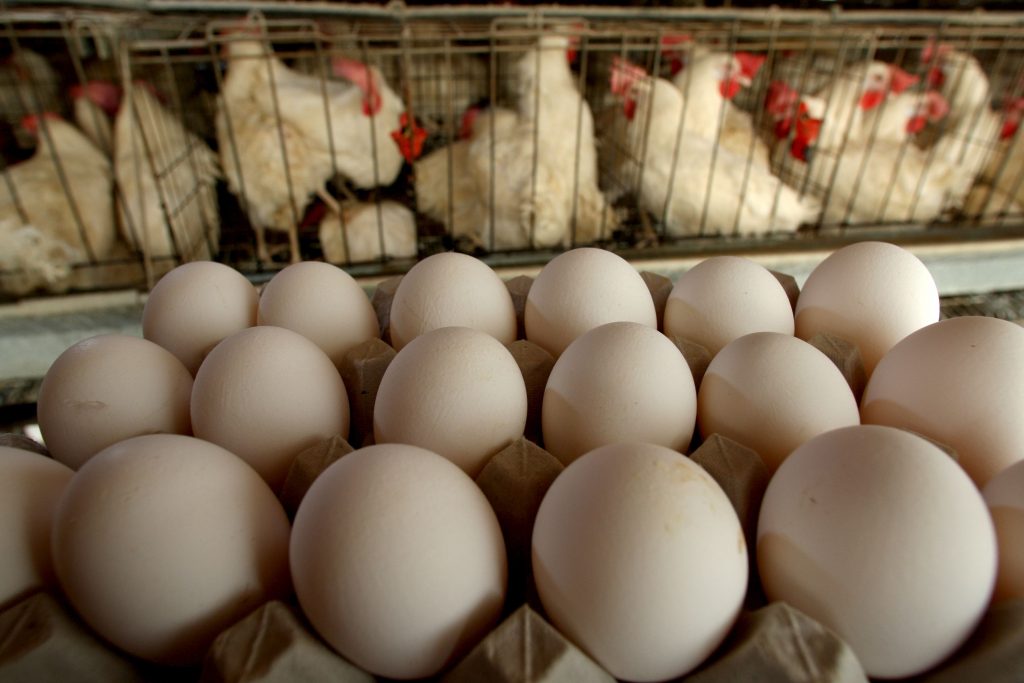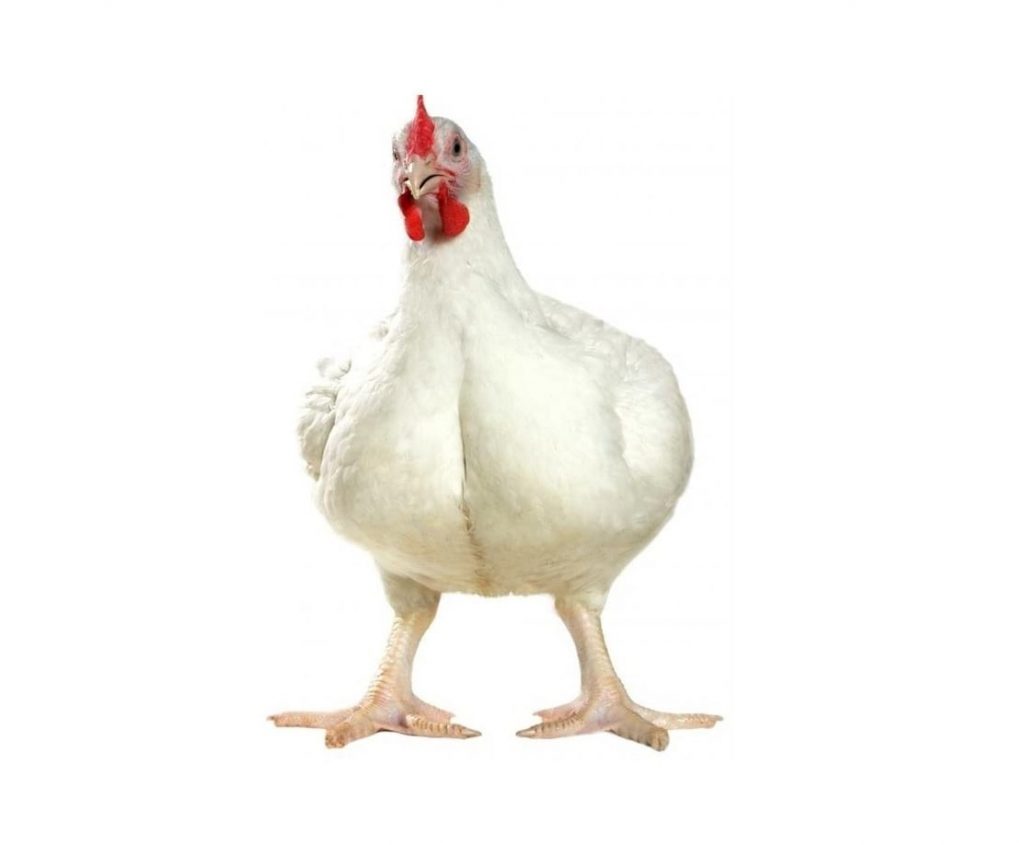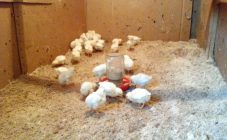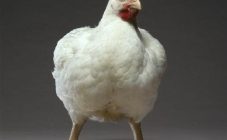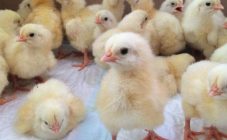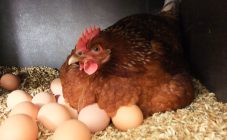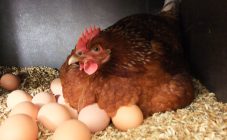Growing meat breeds of chicken for the sale of meat is very popular. Broiler raising is advisable until the third month of life. Subsequently, they significantly reduce the growth rate, continuing to eat in the same quantities, which makes them unprofitable for further cultivation.
Conditions of detention
For successful cultivation, you will need to follow the following guidelines:
- The house must be kept clean. Broilers do not tolerate dirt well and can contract infectious diseases.
- You will need to change the litter every day. For convenience, you can pour a small layer of straw on the cellophane base.
- With an active lifestyle, the rate of maximum mass gain is significantly reduced. Walking is allowed up to two hours a day in a small aviary.
- Broilers are kept in the first week of life at a temperature not lower than +32 degrees. The second week takes place at +30. In the future, it is necessary to reduce the temperature to +20 degrees. Chickens live well in such conditions.
The best option is cage keeping, so the birds gain weight quickly.
At first, chicks are fed exclusively with millet, wheat groats, boiled eggs and chopped corn. At the end of the first week of life, you can transfer them to dry feed.
The water in the containers must be changed every day, several times a week it will be necessary to add potassium permanganate there in order to prevent diseases of the gastrointestinal tract.
How broilers breed
Broilers are a genetically derived cross of poultry collected from various representatives of the order of chickens, differing in large mass. Where do broilers come from? To obtain broiler chicks, Brama, Gudan, Langshan or Dorking breeds are most often involved in breeding. At home, broilers are obtained by crossing the Cornish and Plymouthrock breeds. However, most often they buy ready-to-grow young animals or eggs for incubation.
Do broilers lay eggs?
The answer to the question of whether broiler chickens fly is obvious: like all mature individuals, they are able to reproduce, bringing offspring. However, they are not able to transmit their properties to their offspring. Therefore, breeding broilers at home is unproductive.
With proper maintenance and feeding, they reach their maximum weight at the age of two to three months. And some breeds can weigh two kilograms by one and a half months. Upon reaching the maximum weight set by the breeders for a given cross, they are immediately slaughtered, preventing them from reaching the age at which egg production begins.
Usually, the chicken is ready for laying eggs by 3-5 months. In broilers, this age starts from six months. And some crosses start laying eggs only by the age of one. In addition, due to genetic factors, broiler eggs often contain two yolks, reducing the chances of having viable offspring.
Now it is clear whether broilers lay eggs at home, but this does not make economic sense, since after reaching the maximum weight, it will take several more months to spend feed on the livestock, waiting for the layers to reach puberty. Broiler productivity is also not impressive. Most breeds, Cobb, Hubbards, Ross 308 and 500, can produce up to 3 eggs per week, which is much lower than egg breeds.
Content Tips
If it is decided to breed broilers for eggs, it is necessary to strictly dose the amount of feed for layers and males. With obesity, roosters become lazy and fertilize females much more slowly. The offspring that emerged from the eggs will be slightly larger than ordinary, domestic chickens and easily gain fat.
To obtain eggs from broilers, you must adhere to the following recommendations:
- The diet of broiler chickens should contain a large amount of vitamins and minerals. It is advisable to add to it a significant amount of crushed green grass, shell rock. Due to the natural tendency to obesity in broiler breeds, it is necessary to follow a strict diet and dose the amount of food.
- Layers may have problems with the oviduct. The egg of this cross is notable for its considerable size, which can even lead to the death of the bird. For it to come out, it is necessary to thoroughly massage the abdomen of the bird. Refusal to eat for several days and noisy behavior are common signs of such problems.
- Layers need to provide sufficient lighting, change the water in the drinkers often, and keep the room clean to avoid infectious diseases.
- When broilers start to lay, you need to monitor their behavior, not to allow too many males to reach the layers.
Are broilers flying? Yes, they lay eggs. But by this time, the taste of meat is already beginning to deteriorate. Therefore, raising broilers for the sake of eggs is considered ineffective and unprofitable. For this, it is better to use egg chicken breeds.
